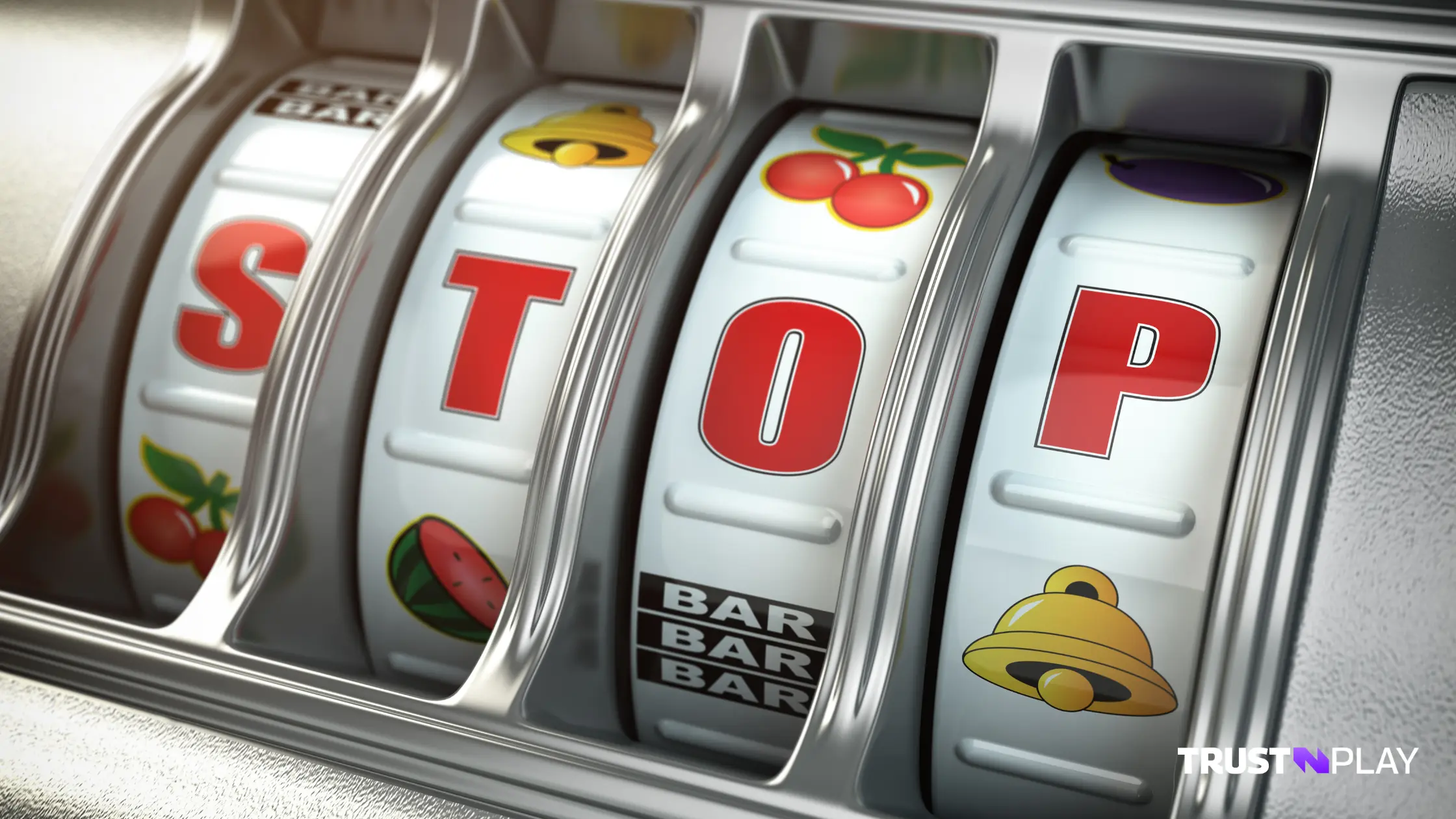Responsible Gambling: Your Guide to Safe Play

At TrustnPlay.com, we’re dedicated to providing a safe and enjoyable gaming experience for our audience. For that reason, we’ve compiled a variety of tools, insights, and resources to ensure you have fun while maintaining control and gambling responsibly.
What Is Responsible Gambling?
Responsible gambling is about having fun while staying in control. It means setting limits, playing for leisure, and ensuring your gambling activities don’t negatively affect your financial or emotional well-being. It’s knowing when to play and when to pause, and understanding how to stop playing online casinos when needed.
The Psychology of Gambling
Understanding the psychology behind gambling is vital for fostering responsible gaming practices. By exploring how chemical reactions in the brain and environmental factors influence a gambler’s behavior, you can gain valuable insights into managing risks and maintaining control.
Here are some key elements:
Brain Chemistry and Dopamine Release: Gambling triggers the release of dopamine, a brain chemical associated with pleasure and reward. This chemical reaction can lead to feelings of euphoria similar to those experienced in drug addiction.
The Impact of Winning and Losing:
- Winning: Reinforces gambling behavior by activating reward centers in the brain, which can drive the compulsion to keep playing.
- Losing: Often leads to the “Gambler’s Fallacy”, where individuals believe they can recover losses by continuing to gamble, further entrenching risky behavior.
Personality Traits and Gambling Susceptibility: Certain personality traits, such as impulsivity, can increase susceptibility to gambling addiction due to a heightened response to the highs and lows of gambling.
Psychological Techniques Used in Casinos: Casinos employ strategies like near-misses and small, frequent wins to heighten player engagement. These elements are crafted to keep players entertained and immersed, highlighting the importance of staying aware of these influences to maintain balanced and responsible gambling habits.
Environmental Influences and Behavior: The exciting and stimulating casino environment is designed to enhance engagement, making it difficult for individuals to resist the allure of gambling.
Responsible Gambling Best Practices
Ensuring a safe and enjoyable gambling experience can require practice for some. By following these key guidelines, you should be well on your way to maintaining control over your gambling habits and playing online casino games as a healthy pastime.
1. Set and Stick to a Budget
Decide how much you are willing to spend on gambling weekly or monthly, and firmly adhere to this limit. Treat it as a fixed expense for entertainment to ensure responsible play.
2. Avoid Chasing Losses
Resist the urge to recover lost money by gambling further. This cycle often leads to greater losses, so accept losses as part of the gaming experience and move on.
3. Take Regular Breaks
If gambling starts to consume more of your time or causes stress, take a few days or even a week off. Use exclusion services if needed to ensure you maintain control and effectively stop online gambling when necessary. If you’re looking to take a more permanent step, learn how to close your online casino account to eliminate temptation entirely.
4. Understand the Odds
Be aware that the odds in gambling are often not in your favor. The casino maintains a house edge for most games. Educate yourself about the true nature of the games to make smarter bets and lower your risks.
5. Gamble with a Clear Mind
Avoid gambling when experiencing strong emotions such as anger or sadness, as this can impair decision-making. Wait until you feel calm and composed.
6. Stay Sober
Never gamble under the influence of alcohol or drugs. These substances can impair thinking and increase risk-taking behavior, leading to poor decisions.
7. Seek Support If Needed
If gambling becomes difficult to control, access available resources and support. Take self-assessment tests to evaluate your habits and identify any risks of addiction.
Recognizing Problematic Gambling Behaviors

Identifying gambling issues early is crucial for maintaining control and seeking help when needed. Here are several signs that may indicate a problem:
- Constantly thinking or talking about gambling, planning your day around it, or making excuses to engage in it.
- Needing to gamble with larger and larger amounts to experience the same thrill
- Difficulty in cutting back or stopping gambling despite repeated attempts — Breaking promises to yourself or others about quitting.
- Feelings of anxiety, depression, or irritability when trying to cut down on gambling.
- Using gambling to cope with feelings of helplessness, guilt, or anxiety.
- Feeling the urge to win back lost money by gambling more.
- Lying about the extent of gambling activities or financial losses to family or friends.
- Neglecting work or personal relationships due to gambling.
- Borrowing money or maxing out credit to cover gambling losses.
Different Methods to Overcome Problem Gambling
Overcoming problem gambling requires a multifaceted approach tailored to individual needs, blending professional support with personal commitment. Here, we explore the various methods available:
1. Gambling Addiction Treatment Programs
Programs across the US offer comprehensive support to help overcome addiction, providing structured and personalized treatment plans. Inpatient or Residential Treatment programs offer intensive recovery care for severe addiction, focusing on both gambling and associated issues like financial management.
2. Gambling Hotlines
The National Problem Gambling Helpline (1-800-GAMBLER) provides confidential, 24/7 support and information, connecting you with local resources and professionals.
3. Gambling Counseling Services
Many states offer specialized counseling services to understand your gambling behavior and develop effective management strategies, promoting long-term recovery. Cognitive Behavioral Therapy (CBT) is particularly effective, helping individuals identify and challenge unhealthy gambling thoughts and replace them with healthier alternatives.
4. Gambling Support Groups
These groups provide a supportive community where individuals share experiences and encourage each other through recovery.
5. Self Exclusion Tools
Self-exclusion is a vital tool that allows individuals to voluntarily block access to gambling platforms, promoting a safer environment for recovery. The process involves banning yourself from specific gambling sites for a period ranging from six months to several years, which you can set up in various ways.
Getting Help and Professional Support in the US

When gambling becomes problematic, seeking professional assistance is a crucial step towards recovery. Here’s where you can get help in the US:
Support Groups
- Gamblers Anonymous (GA)
- A global network providing peer support through regular meetings.
- Offers a 12-step recovery program similar to Alcoholics Anonymous.
- National Council on Problem Gambling (NCPG)
- Provides a wealth of resources and support for problem gamblers and their families.
- Helpline: 1-800-522-4700.
- SMART Recovery
- An alternative to traditional 12-step programs, focusing on self-empowerment.
Treatment Facilities
- Promises Behavioral Health
- Aims to improve self-esteem, build shame resiliency, rebuild relationships, and develop stress-coping skills to resist gambling and destructive behaviors.
- Algamus
- Offers a specialized residential program focused solely on gambling addiction
- Uniquely integrates Gambler’s Anonymous and the 12-step model
- St. Joseph’s Addiction Treatment & Recovery Centers
- Offer a comprehensive range of services, including inpatient and outpatient care, family programs, and aftercare support
Self Exclusion Tools
- The National Voluntary Self-Exclusion Program (NVSEP)
- Free tool—currently available in California, Colorado, Iowa, and Michigan, with more states to come soon as the organization prepares for expansion
- BetBlocker
- Free app for Apple and Android devices
- No registration needed and only takes 2 minutes to set up—great option if you need something fast and easy
- Gamban
- A secure and dependable way to avoid gambling sites and apps
- Free trials are available for 7 days, but you will need to pay a small fee of $3.49 monthly from thereafter
- Gamblock
- Premium app to block gambling sites and apps from your devices, with a particular focus on preventing underage gambling
- More expensive, but it’s a good option if you are looking for high-quality software
So, Are You Ready to Gamble Responsibly?
Embarking on a journey of responsible gambling ensures that your online casino experience remains enjoyable and under control. By adopting the practices and tools outlined here, you can maintain balance and make informed decisions.
Ready to deepen your understanding and enhance your skills? Visit our Casino 101 section—your ultimate learning hub for mastering the art of gaming safely and responsibly.